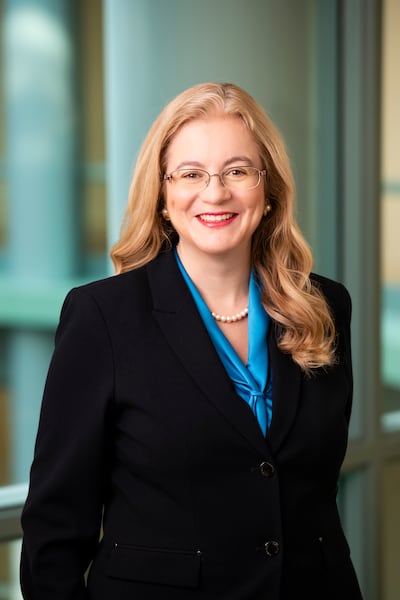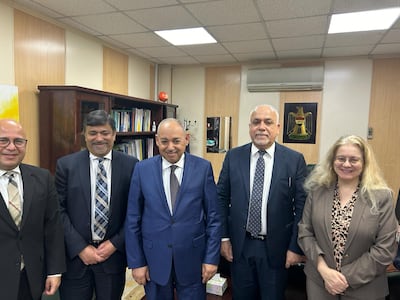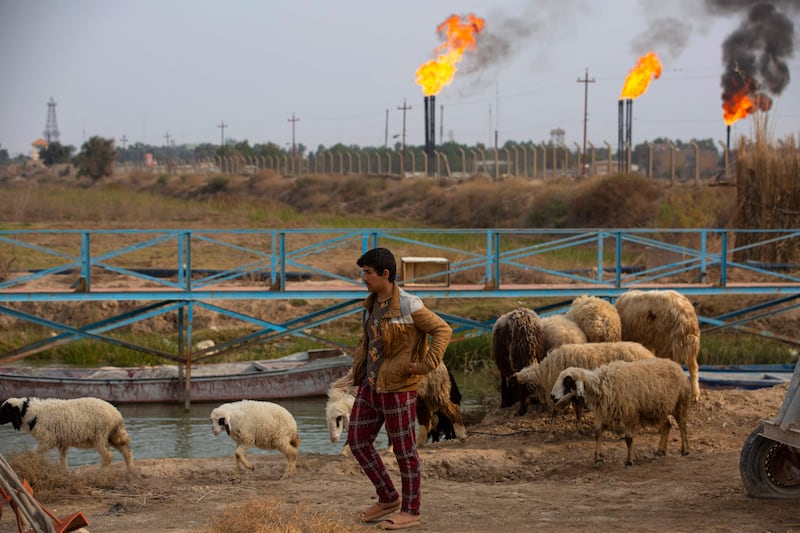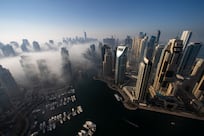Iraq should take advantage of the current political stability and improved security to diversify its oil-reliant economy and implement reforms to strengthen the private sector, a senior official of the International Finance Corporation has said.
The goal requires simplification of how business is conducted in the country and fighting endemic corruption, Hela Cheikhrouhou, the IFC's regional vice president for the Middle East, Central Asia, Turkey, Afghanistan and Pakistan, told The National.
“Time is of the essence,” Ms Cheikhrouhou said on Tuesday in Baghdad. “We need to work fast and we need to work hard to implement the steps for improving the quality and accessibility of services to all the Iraqis."
The Iraq visit by the IFC, a member of the World Bank Group, is aimed at bolstering the role of the private sector in Iraq’s economy and boosting the country’s economic overhaul efforts. The country is Opec’s largest producer after Saudi Arabia and oil revenue makes up about 95 per cent of its income.
Ms Cheikhrouhou during her three days of engagements met senior officials, including Prime Minister Mohammed Shia Al Sudani, as well as private-sector representative and female entrepreneurs.
“It is very important to enable the private sector to thrive and to be a good destination for investment, by the local Iraqis, by the diaspora Iraqis, by the regional investors [and] by the international investors,” she said.
“That requires simplification and ease of doing business, finding ways for the bureaucratic processes to be simpler." She highlighted the need for efficiency in registration and taxation systems.
The country would need to make it easier for people to do the big infrastructure projects as well as public-private partnerships and entrepreneurial ventures.

Iraq is perceived to be one of the most corrupt countries in the world, ranking 154 out of 180 in Transparency International's corruption perceptions index for 2023.
“That aspect of transparency, good business environment is essential,” she said. “Good governance is essential for achieving the expectation by the Iraqis to have better services, quality services, better future and a private sector-led economy."
Over the past two decades, Iraq has been rocked by waves of conflict and violence following the 2003 US-led invasion that toppled Saddam Hussein.
For years after the invasion, Iraq was beleaguered by chaos and civil war, as a variety of armed groups vied for power and territory, and targeted US troops in the country.
A period of relative calm in the early 2010s was broken by the rise of ISIS, which overran large parts of the country from 2014 until it was largely defeated by the end of 2017.
Since October 2022, Iraq appeared more stable when Mr Al Sudani took office after a year-long political wrangling that led to bloody clashes between Iran-backed Shiite militias.
Flush with petrodollars, the government has initiated numerous infrastructure projects and successfully drawn in foreign investors across various sectors.
The government and parliament have taken some steps to support the private sector, including the approval of a new social security law and dropping fines imposed on companies for delaying their financial statements.
However, Iraq’s economy is still at risk of uncertain oil price outlook.

Ms Cheikhrouhou expressed optimism, saying government measures are on the right path.
“I think there is very good momentum and very good effort,” she said.
“This was a moment that we were really looking forward to, which is to have a government of consensus, and security and stability returning”.
However, she acknowledged “it will take a lot of work and effort, but every long journey starts with a step, and the steps are happening”.
IFC, which is known as the development bank for the private sector in emerging markets and developing economies, has maintained a long-standing relationship with Iraq.
Since 2005, IFC has invested and mobilised more than $1.9 billion to support Iraq’s private sector, she said.
In September, IFC signed an agreement to act as lead transaction adviser for a public-private partnership (PPP) to rehabilitate, expand, finance, operate and maintain Baghdad International Airport – the country's largest – and bring its infrastructure in line with global standards.
It also recently invested up to $130 million in Al Douh Iraqi Company for Cement Industries.
“IFC has been ramping up its activities in Iraq and we are extremely keen to support the reconstruction and economic development of Iraq for the future,” Ms Cheikhrouhou said.
“There’s opportunities here for all so we need to make it easier for people and companies and investors to proceed."







